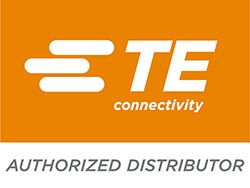TE Connectivity NEOHM SMA-Q 41.2Ω, Melf 0102 Thin Film SMD Resistor 1% 0.3W
- RS Stock No.:
- 590-510
- Mfr. Part No.:
- SMA-Q0102FTDL41R2
- Brand:
- TE Connectivity

Bulk discount available
Subtotal (1 reel of 3000 units)*
£192.00
(exc. VAT)
£231.00
(inc. VAT)
FREE delivery for orders over £50.00
Temporarily out of stock
- Shipping from 03 April 2026
Need more? Click ‘Check delivery dates’ to find extra stock and lead times.
Units | Per unit | Per Reel* |
|---|---|---|
| 3000 - 12000 | £0.064 | £192.00 |
| 15000 + | £0.063 | £189.00 |
*price indicative
- RS Stock No.:
- 590-510
- Mfr. Part No.:
- SMA-Q0102FTDL41R2
- Brand:
- TE Connectivity
Specifications
Technical Reference
Legislation and Compliance
Product Details
Find similar products by selecting one or more attributes.
Select all | Attribute | Value |
|---|---|---|
| Brand | TE Connectivity | |
| Resistance | 41.2Ω | |
| Technology | Thin Film | |
| Package/Case | Melf 0102 | |
| Tolerance | 1% | |
| Power Rating | 0.3W | |
| Temperature Coefficient | ±50ppm/°C | |
| Automotive Standard | AEC-Q200 Compliant | |
| Series | NEOHM SMA-Q | |
| Minimum Operating Temperature | -55°C | |
| Maximum Operating Temperature | +155°C | |
| Select all | ||
|---|---|---|
Brand TE Connectivity | ||
Resistance 41.2Ω | ||
Technology Thin Film | ||
Package/Case Melf 0102 | ||
Tolerance 1% | ||
Power Rating 0.3W | ||
Temperature Coefficient ±50ppm/°C | ||
Automotive Standard AEC-Q200 Compliant | ||
Series NEOHM SMA-Q | ||
Minimum Operating Temperature -55°C | ||
Maximum Operating Temperature +155°C | ||
- COO (Country of Origin):
- TW
The TE Connectivity Metal film precision MELF resistor is designed with a robust SMD-enabled structure, ensuring maximum reliability and precision in your applications. Engineered to withstand the demands of both automotive and industrial sectors, this resistor boasts an impressive combination of tight tolerance and exceptionally low temperature coefficient of resistance (TCR). The resistor's enhanced coating provides improved humidity protection, making it a dependable choice for critical environments. Its lead-free and RoHS-compliant construction underscores a commitment to sustainability, while the various available sizes and power ratings allow for flexible integration into diverse electronic systems. The unique attributes of It contribute to its AEC-Q200 qualification, ensuring it meets stringent automotive standards in reliability and performance.
Exceptional moisture protection for increased durability
Lead free SMD enabled design for easy integration
AEC Q200 qualified for automotive reliability
Ultra low TCR ensures consistent performance across temperatures
Wide resistance range enables versatile applications
Optimal stability for demanding measurement and testing conditions
Lead free SMD enabled design for easy integration
AEC Q200 qualified for automotive reliability
Ultra low TCR ensures consistent performance across temperatures
Wide resistance range enables versatile applications
Optimal stability for demanding measurement and testing conditions
Related links
- TE Connectivity NEOHM SMA-Q 8.87kΩ, Melf 0102 Thin Film SMD Resistor 1% 0.3W
- TE Connectivity NEOHM SMA-Q 866Ω, Melf 0102 Thin Film SMD Resistor 1% 0.3W
- TE Connectivity NEOHM SMA-Q 1.5Ω, Melf 0102 Thin Film SMD Resistor 1% 0.3W
- TE Connectivity NEOHM SMA-Q 105Ω, Melf 0102 Thin Film SMD Resistor 1% 0.3W
- TE Connectivity NEOHM SMA-Q 41.2kΩ, Melf 0102 Thin Film SMD Resistor 1% 0.3W
- TE Connectivity NEOHM SMA-Q 1.87kΩ, Melf 0102 Thin Film SMD Resistor 1% 0.3W
- TE Connectivity NEOHM SMA-Q 102kΩ, Melf 0102 Thin Film SMD Resistor 1% 0.3W
- TE Connectivity NEOHM SMA-Q 1.5kΩ, Melf 0102 Thin Film SMD Resistor 1% 0.3W
